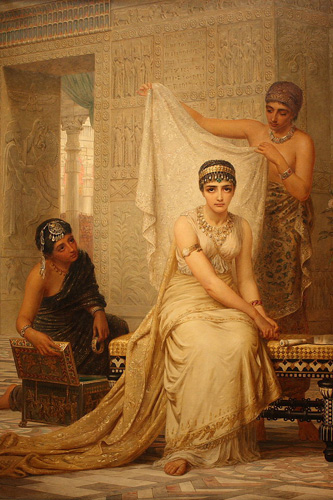
How well do you know yourself? You may be better acquainted with yourself than anyone else you know, but we would venture to guess you are still something of a mystery to yourself. For example, did you know that you can’t tickle yourself? Did you know that if you are a woman then you blink twice as many times as a man? Did you know you are one centimeter taller in the morning than in the evening? If these surprising facts are true of you, what more significant realities about yourself might you be missing?
The Hebrew Bible’s Book of Esther explores the question of our unknown and untapped potential in a fascinating story set in 5th century B.C. Persia. Here’s the story, in brief: Esther is the cousin of Mordecai, a Jew who worked for the King of Persia. When the king is searching for a new wife, Mordecai arranges for Esther to get an interview for the job, but warns her not to reveal her religious identity. Esther is eventually selected to become the queen of Persia and all is well until a particularly ambitious palace employee, who disliked Mordecai, decided to take out his animosity on all the Jews of the realm. He convinced the King to utterly destroy them all. Now Mordecai and Esther swing into action. Though Esther puts her own life at risk if she reveals her Jewish identity to the king, she alone is positioned to be of influence in preventing a slaughter. Cousin Mordecai urges her to save her people with these words: “Who knows? Perhaps you have come to royal dignity for just such a time as this.” So Esther, with great bravery and cleverness, reveals her identity and exposes the plot against her people to the king. The king intervenes as Esther suggests and disaster is averted.
What a marvelous little story. Who could ever have guessed that Esther would be just the right person, with just the right qualities, at just the right time, to do something critically important? Esther would probably have been as unwilling as anyone else to imagine it.
Her story always leaves us wondering about the seemingly chance occurrences of our lives. Why were we placed in the families that claim us? What started us down the life path we’ve undertaken? Why have we been endowed with our own unique configuration of strengths, gifts, and abilities? Might we, like Esther, be uniquely positioned for some important act, at some critical moment, for some significant end? Could we miss recognizing something important about ourselves or our circumstances, and thereby fail to fulfill a mission that we alone can accomplish?
Now, it’s true that the chance to save the lives of a whole group of people doesn’t emerge very often. Esther’s situation was not our own. But perhaps our opportunities for doing some dramatic good in the world aren’t as limited as we think.
Maybe there’s a broken relationship you can help to reconcile. Maybe there’s an injustice against which you can speak out. Maybe there’s a fear you can calm, a wrong you can right, a hand you can hold, a dream you can fulfill. God knows, maybe you were placed here, for just such a time as this.



